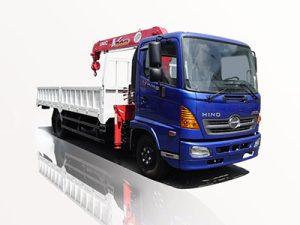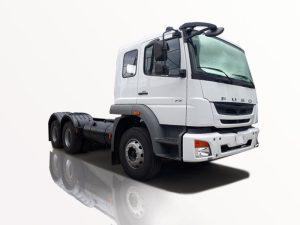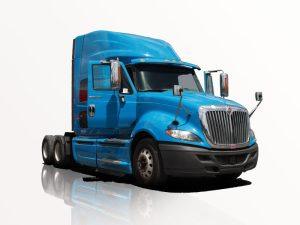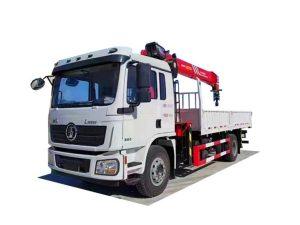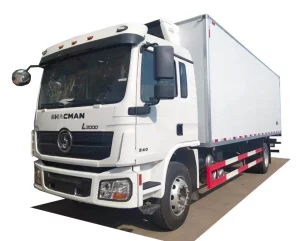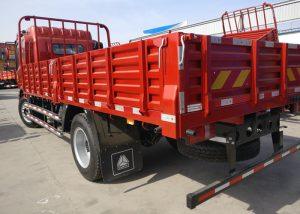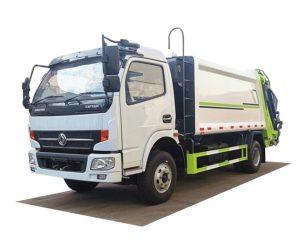Monday to Saturday - 8:00 -17:30
Parking Lot Sweeper for Sale: A Comprehensive Guide
Introduction
Maintaining a clean and presentable parking lot is essential for businesses, educational institutions, and public spaces. A parking lot sweeper is a powerful machine designed to remove dirt, debris, leaves, and litter, ensuring that the area remains safe and attractive. This article explores everything you need to know about purchasing a parking lot sweeper, including types, features, practical tips, examples, and much more. Whether you are a business owner, facility manager, or contractor, this guide will help you make an informed decision when looking for a parking lot sweeper for sale.
Understanding Parking Lot Sweepers
What is a Parking Lot Sweeper?
A parking lot sweeper is a specialized vehicle or machine equipped with brushes and suction capabilities to clean various types of surfaces. It is commonly used in commercial parking lots, industrial sites, and public sidewalks.
Types of Parking Lot Sweepers
- Ride-On Sweepers: Larger machines designed for extensive areas, allowing operators to sit while cleaning.
- Walk-Behind Sweepers: Smaller and maneuverable, ideal for tighter spaces or smaller parking lots.
- Truck-Mounted Sweepers: Attached to trucks for heavy-duty tasks, perfect for municipalities and large commercial projects.
Key Features to Consider
1. Sweeping Capacity
Look for a sweeper that can handle the volume of debris typical for your location. This includes the capacity of the hopper and the rate of cleaning.
2. Sweeping System
Different machines utilize various sweeping systems, such as rotary brushes or vacuum systems. Assess your needs based on the type of debris you typically handle.
3. Power Source
Parking lot sweepers can be powered by gasoline, diesel, or electricity. Electric models are quieter and more eco-friendly, while gas or diesel models tend to have larger power and capacity.
4. Durability
Given the tough conditions often encountered in parking lots, a durable construction is necessary. Look for materials that resist wear and tear.
5. Ease of Use
User-friendly controls, ergonomic design, and low maintenance requirements enhance the usability of the machine.
Benefits of Using a Parking Lot Sweeper
1. Improved Aesthetics
A clean parking lot enhances the appearance of your business, creating a positive first impression on customers.
2. Enhanced Safety
Regular sweeping reduces hazards such as debris that can cause slips, trips, or vehicle accidents.
3. Increased Durability of Pavement
Removing debris and contaminants from surfaces can extend the life of the pavement and reduce the need for costly repairs.
4. Eco-friendly Solutions
Modern sweepers can minimize waste by recycling materials, thus contributing to environmental sustainability.
How to Choose the Right Parking Lot Sweeper
1. Assess Your Needs
Consider the size of your parking lot, the frequency of cleaning required, and the type of debris typically found.
2. Budget Considerations
Set a budget not only for the purchase but also for ongoing maintenance and operational costs. Vehicles can range from a few thousand to tens of thousands of dollars.
3. Research Manufacturers and Models
Investigate different brands and their specific models. Consider factors like reliability, customer support, and warranty options.
Table: Popular Brands of Parking Lot Sweepers
| Brand | Type | Key Features |
|---|---|---|
| Nilfisk | Ride-On | Eco-friendly, Compact design |
| Tennant | Walk-Behind | Quiet operation, User-friendly |
| Schmidt | Truck-Mounted | High capacity, Heavy-duty |
4. Test Before You Buy
If possible, arrange for a demo or trial period. Testing the sweeper will give you a clear understanding of its performance and suitability for your needs.
Practical Examples of Parking Lot Sweepers in Action
1. Commercial Use
A busy shopping mall employed a ride-on parking lot sweeper, significantly decreasing litter and the need for manual cleaning during peak hours.
2. Municipal Application
A city utilized a truck-mounted sweeper to clean streets and parking lots effectively, leading to improved public hygiene and aesthetics.
3. Educational Institutions
A university invested in a walk-behind sweeper to maintain multiple small parking areas. The flexibility of the unit allowed for thorough cleaning without needing large equipment.
Maintenance Tips for Your Parking Lot Sweeper
1. Regular Inspection
Check for wear on brushes, filters, and wheels. Regular inspections can help prevent major repairs.
2. Clean After Each Use
Cleaning the sweeper after use prevents the buildup of dirt and debris, helping maintain the machine’s performance.
3. Follow Manufacturer Guidelines
Always refer to the user manual for maintenance schedules and procedures specific to your model.
4. Store Properly
When not in use, store the sweeper in a dry and secure area to protect it from environmental damage.
Where to Find Parking Lot Sweepers for Sale
1. Online Retailers
Websites such as Amazon, eBay, and specialist industrial equipment retailers usually have a range of new and used sweepers for sale.
2. Local Dealers
Check out local dealerships that specialize in industrial cleaning equipment. They can offer professional advice and demo opportunities.
3. Classified Ads
Websites that feature classified ads often have listings for used parking lot sweepers at lower prices.
4. Auctions
Look for equipment auctions where used rental or government-owned equipment may be sold for a fraction of the original cost.
Frequently Asked Questions (FAQs)
1. How much does a parking lot sweeper cost?
Prices can vary widely based on the type and brand, ranging from $5,000 for smaller models to over $100,000 for large truck-mounted units.
2. Are used parking lot sweepers worth buying?
Yes, used sweepers can provide excellent value if they are in good condition and meet your cleaning needs. Always conduct a thorough inspection before purchasing.
3. How often should a parking lot be swept?
The frequency of sweeping depends on factors such as location, weather conditions, and usage. Generally, weekly or monthly sweeping is recommended for high-traffic areas.
4. Can parking lot sweepers handle leaves and heavy debris?
Yes, many modern sweepers are equipped to handle leaves, dirt, and other heavy debris, making them ideal for fall cleanup operations.
5. What maintenance does a parking lot sweeper require?
Regular inspections, cleaning of components, changing filters, and replacing worn brushes are critical maintenance tasks for optimal performance.
6. Can I rent a parking lot sweeper instead of buying one?
Yes, many equipment rental companies offer parking lot sweepers for rent, which can be a cost-effective option for temporary projects.



